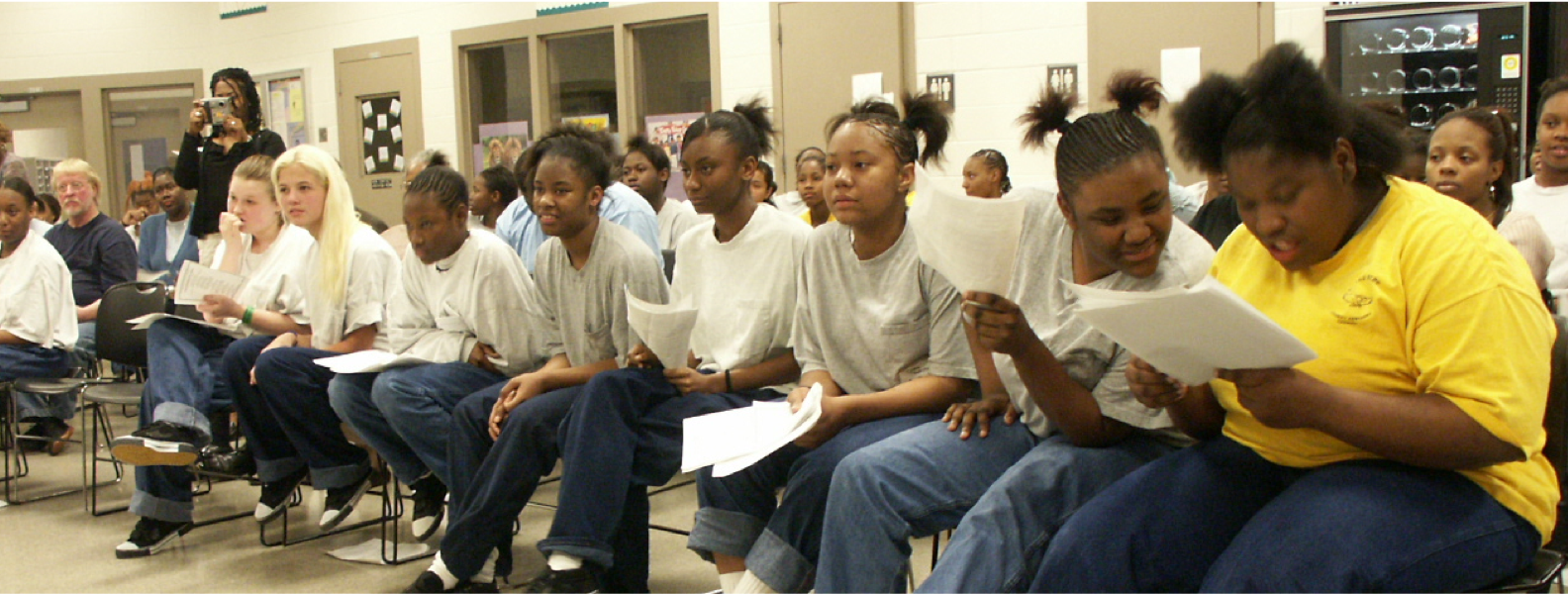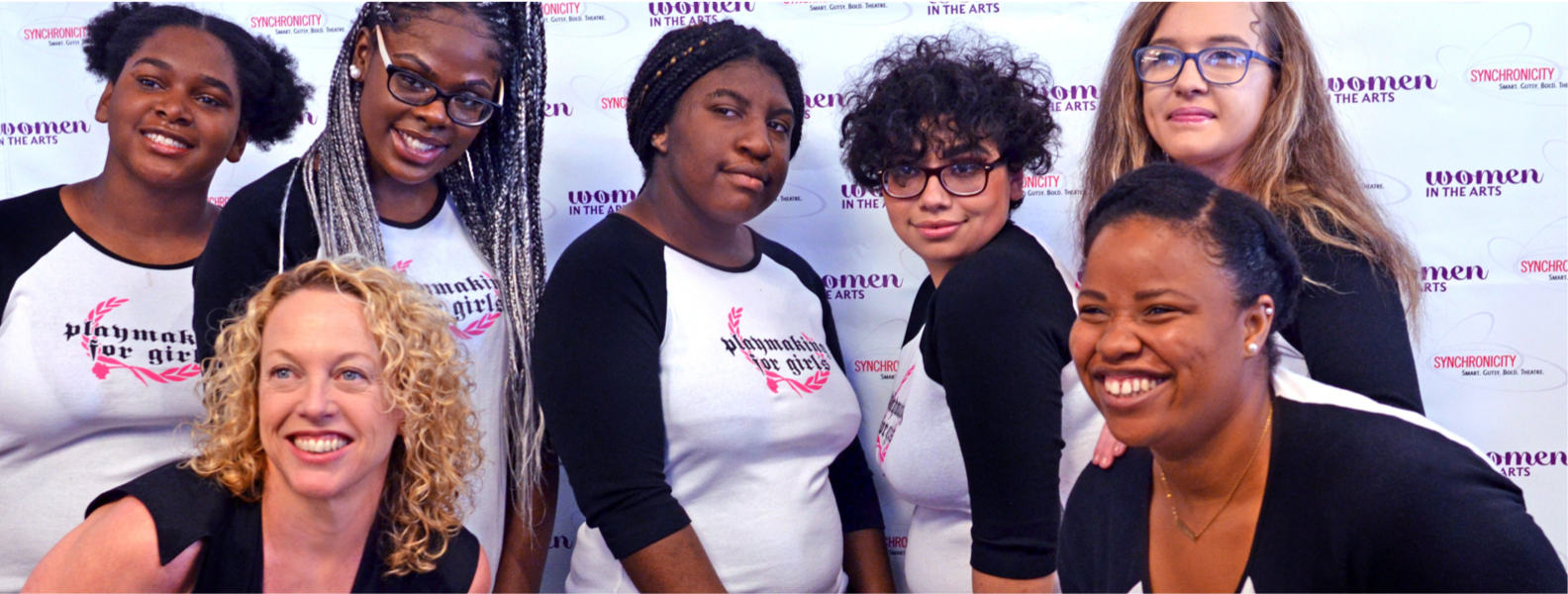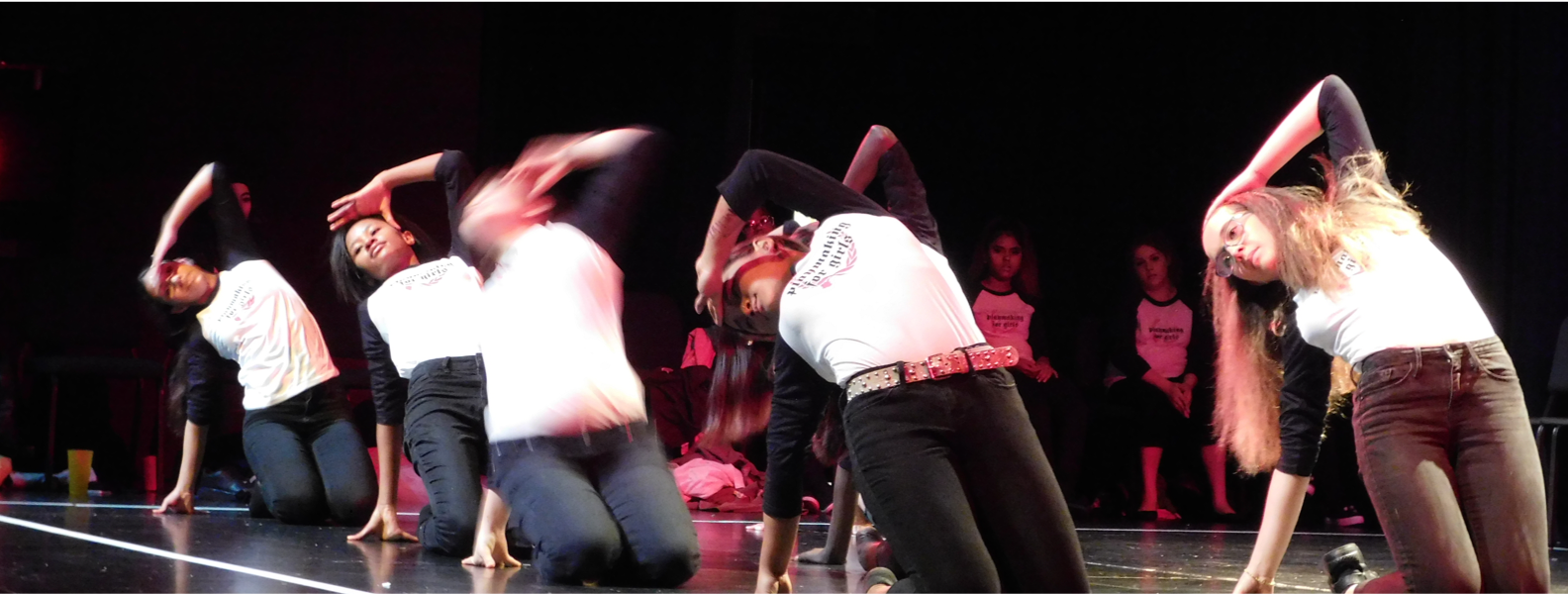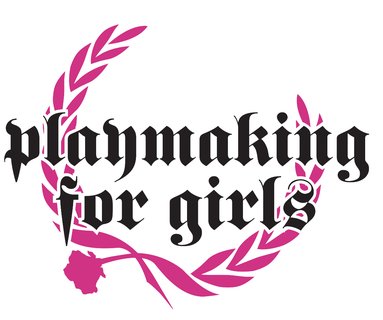Playmaking for Girls is an innovative theatre outreach program that empowers with-hope teen girls in the Metro Atlanta area.
Many of the Playmaking for Girls (PFG) participants have been impacted by the Department of Juvenile Justice system, and are living in group homes as wards of the state. Others have recently come to the United States as refugees from all over the world, and are acclimating to a new country and language. These young ladies come together as playwrights and actors, and through theatre, are empowered to find their voices and speak their stories.
The Playmaking for Girls program offers a continuum of services through four main components:
- Two-day Creation Workshops: Girls write and perform plays, enabling them with skills to imagine new pathways and choices for their lives;
- In-School Residency: Teaching middle school girls techniques to develop self-confidence, collaboration, and self-esteem;
- Summer Program and Public Performance: A culmination of the year's work, a rehearsal process and public performance that teaches skill-building, accountability, and the foundations for empathy through support structures within ensembles;
- Periodic additional special performances that allow the ensemble to share their talents and voices with others in the community.
CREATION WORKSHOPS
Each year, we conduct seven weekend workshops where our talented female artists spend two days with a group of 16-20 teen girls. These girls come from group homes, are wards of the state through DFACS, or are refugee girls living in the Clarkston area. During the workshops, the girls write, rehearse, and perform short plays about their life experiences. Parents, caretakers, and mentors are invited to come to the performance in order to connect with their daughters through this positive experience.

IN-SCHOOL RESIDENCY
In October 2006 we piloted our After-School Program where for two days each week for eight weeks, our artists worked with nine middle-school girls to help them develop self-confidence, public speaking, empowerment and self-expression, and a strong sense of ensemble through live theatre.
Over time, our PFG after-school program evolved to be part of the school day, through residencies. Currently we partner with the Global Village Project, an all-girls middle school for refugee students in Decatur, GA, to provide an ongoing in-school residency for middle school refugee girls one day a week throughout the school year.

PUBLIC PERFORMANCE
Every June, we take a number of plays written at our play writing workshops, add professional production value and produce a free public performance. The participants are currently living in group homes, recently released from detention centers, or live in the refugee community. The show is rehearsed for six days, and then performed for family, friends and the community at a professional theatre. After the show we conduct a conversation with the audience. The next day the show travels to community and refugee facilities where the girls perform for other at hope youth throughout Atlanta.

HISTORY
In spring 2002, Synchronicity produced Kia Corthron's Breath, Boom, a play that dealt with the life of a gang girl from age 16 to 30. In order to better prepare our actors, and to give back to the community, Synchronicity teamed with the Wholistic Stress Control Institute's SIMBA program to implement a pilot workshop with 30 teen girls detained at a local Regional Youth Detention Center. At the time, we had no idea what this "experiment" would turn into.
These initial workshops were so successful, and we received such terrific feedback from the girls, the detention centers and our community partners, that in March 2003 we launched a bimonthly program at Metro RYDC, which serves youth from Fulton and DeKalb counties.
In 2004, we decided that we wanted to expand and get more time with the girls, so we instituted our PFG Public Performance, which happens each June. Working with as many as 20 girls who are now out of detention, we rehearse the best plays written in that year’s workshops. This is a full-fledged performance, with props, costumes, lights, sound – and the girls perform alongside professional actors.
Dr. Maisha T. Winn wrote a book about our Playmaking for Girls program titled Girl Time, published by Columbia University’s Teachers College Press in 2011. Dr. Winn generously donates the royalties from the book to support PFG.


